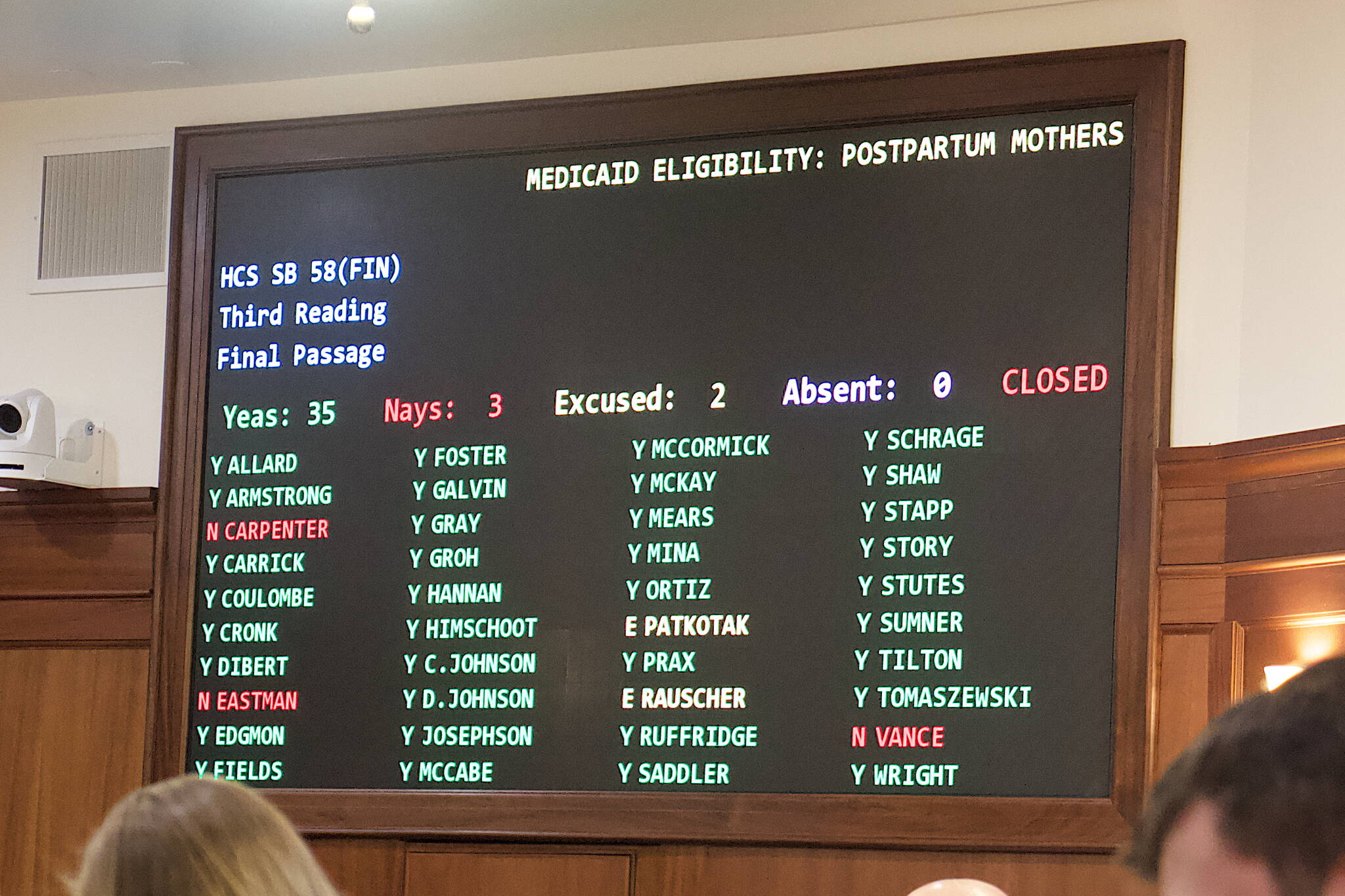A bill expanding Medicaid coverage for new mothers to 12 months instead of 60 days passed the Alaska State House by an overwhelming margin Wednesday, putting it one procedural step from being sent to Gov. Mike Dunleavy who introduced the proposed law.
Senate Bill 58 is based on a federal policy implemented at the onset of the COVID-19 pandemic in 2020 that allowed states to provide postpartum coverage for up to 12 months. Originally set to expire in 2027, a federal change in 2023 allows states to make the extension permanent.
“Fifty-one percent of new mothers fall under the category of this bill currently,” said Rep. Will Stapp, a Fairbanks Republican who carried the bill in the House, including sponsoring a committee amendment that expanded eligibility. “When mothers are covered by health insurance we see a 25% increase in child wellness. That looks to increase with the passage of this bill.”
He said state figures show 88% of pregnancy deaths during the past five years were “potentially preventable” if quality health care had been available.
“Keep in mind over the last few years Alaska has seen an alarming increase in mortality rates for pregnant women,” Stapp said. “This is particularly true in rural Alaska.”
The bill passed by a 35-3 vote, with Reps. Sarah Vance of Homer, David Eastman of Wasilla and Ben Carpenter of Nikiski voting no. The three are among the most conservative Republicans in the House.
The Senate, which passed the bill unanimously April 19, must concur with changes made by the House before it is transmitted to the governor. The changes include raising eligibility for pregnant women to 225% of the state poverty line instead of 200%, and expanding eligibility for some categories of people such as those with disabilities or in a care facility who might otherwise be excluded.
The extension will add a complication for the state’s Division of Public Assistance, which is reviewing the Medicaid eligibility of all Alaska residents during a one-year period that begin April 1. Such reviews were put on hold by the federal government for three years due to the pandemic.
The division is also trying to cope with staffing shortages and outdated equipment that have caused problems with its assistance programs, most notably a backlog in processing food stamp applications that dates back to last September.
• Contact reporter Mark Sabbatini at mark.sabbatini@juneauempire.com

